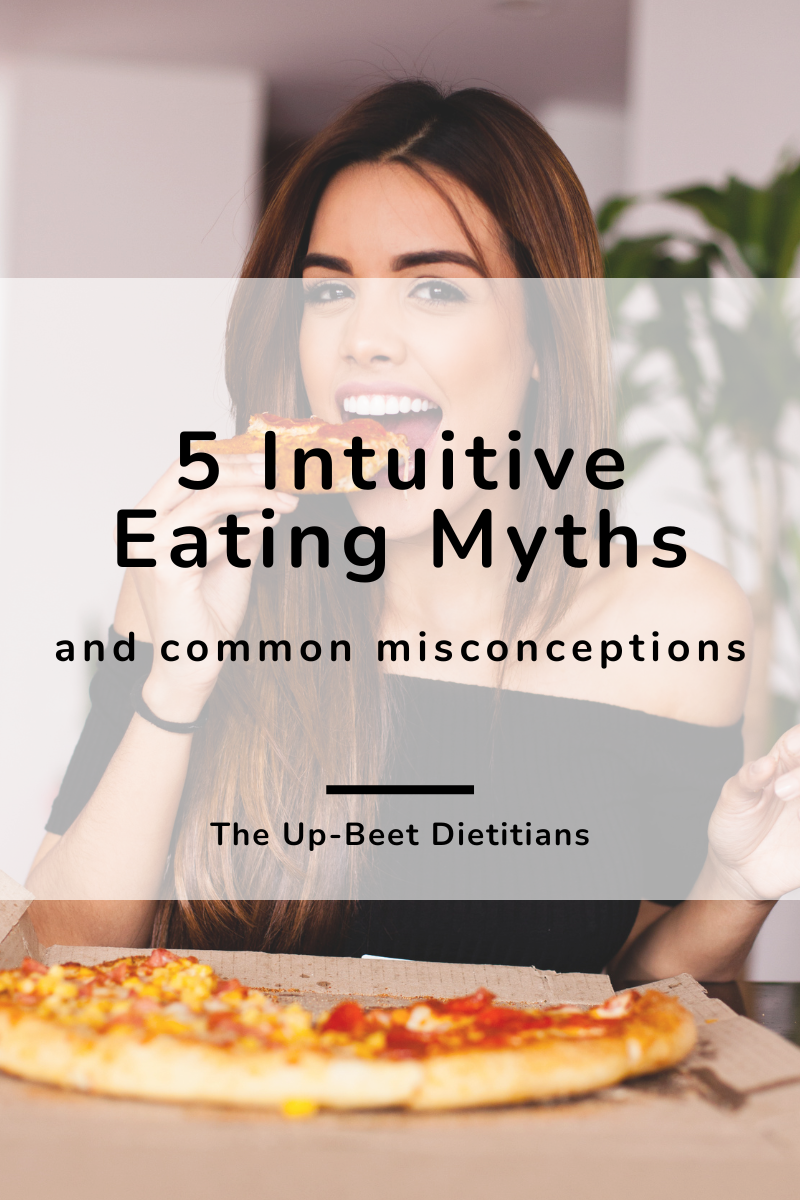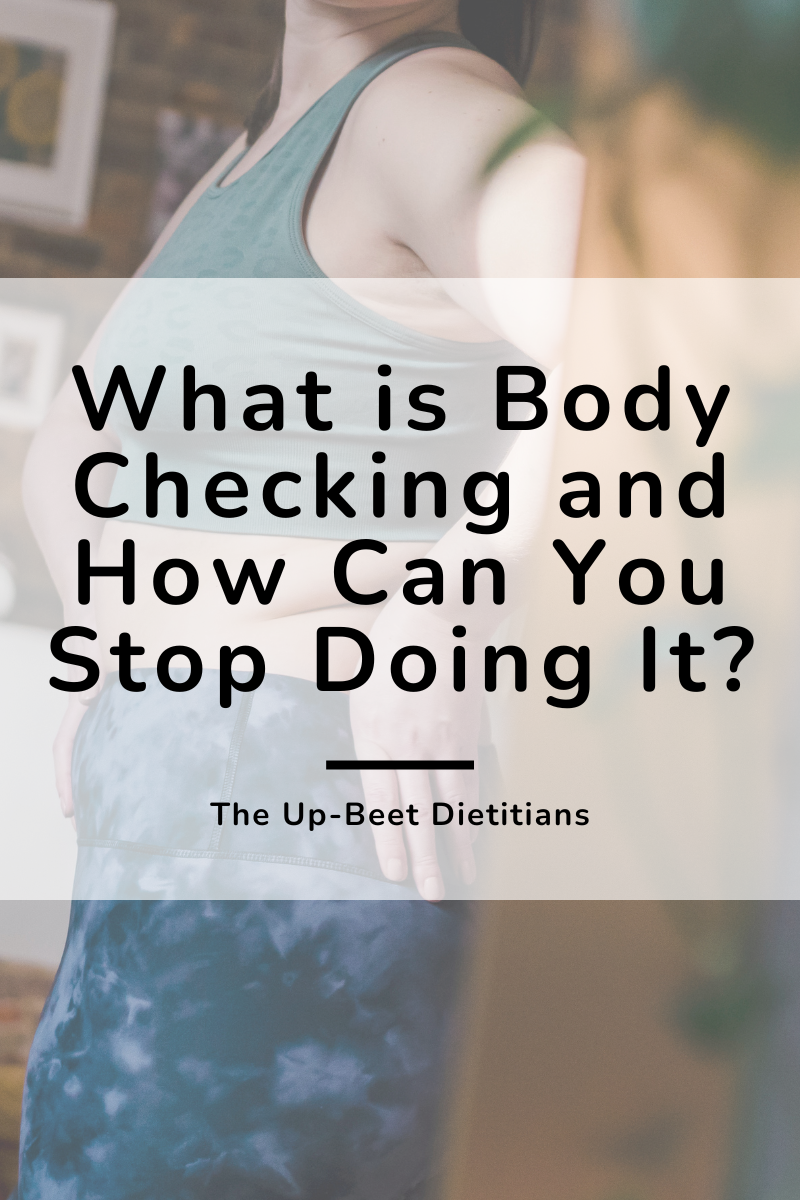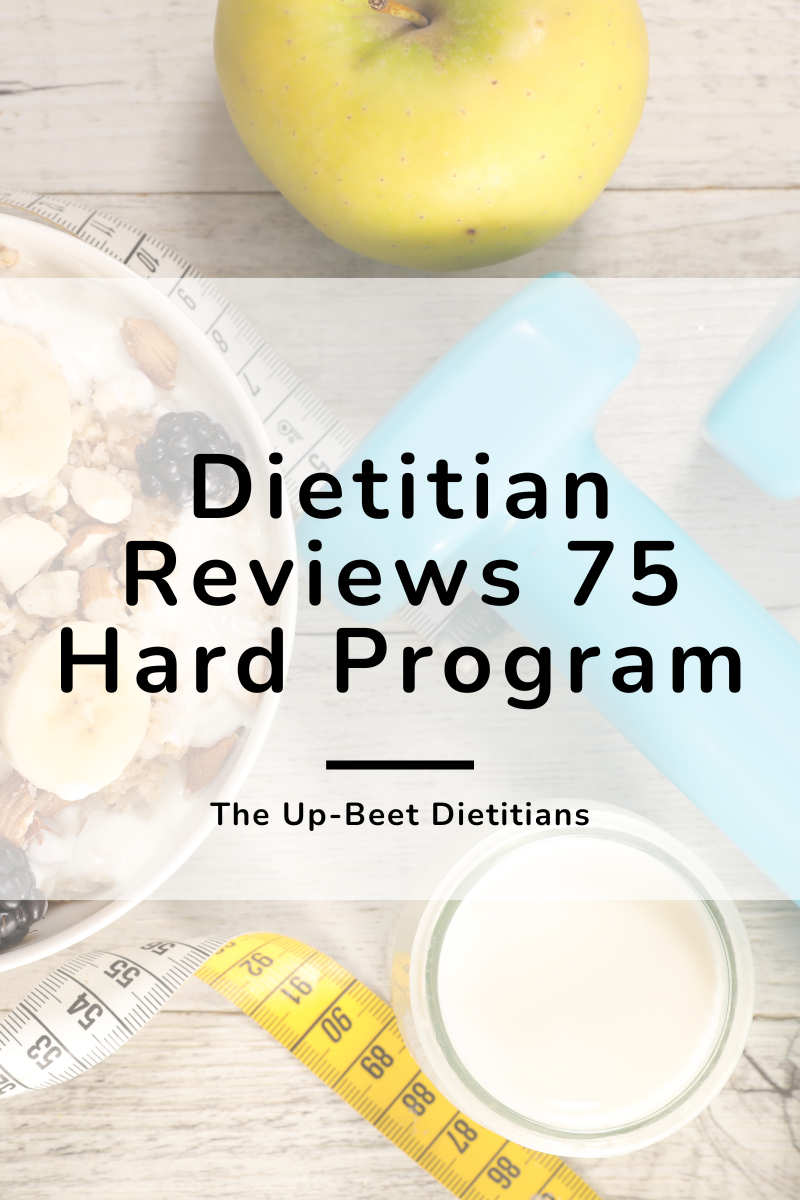5 Intuitive Eating Myths and Common Misconceptions
Written by: Hannah Thompson, RDN, LD, CPT
Is Intuitive Eating just eating whatever you want? What if I can’t trust my intuition?
Intuitive eating is commonly misunderstood and incorrectly portrayed, especially on social media. While Intuitive Eating has been around since 1995, it has been recently gaining popularity. This is a great step in the right direction towards a society less entrenched in diet culture, but unfortunately Intuitive Eating is sometimes marketed improperly. Some individuals will advertise this anti-diet approach as a means for weight loss and some will say that it just involves “eating when hungry and stopping when full”. As a result of these frequent misunderstandings, critics will claim that Intuitive Eating is not evidence-based and that it is “promoting obesity”.
This post will address 5 common myths regarding Intuitive Eating, but there are many more where these come from. Be sure to listen to The Up-Beet Dietitians podcast to hear more about Intuitive Eating and what it is (and is not).
Myth 1: Intuitive Eating just means "eating whatever you want, when you want"
Making peace with food and having unconditional permission to eat is often misconstrued. While you could eat donuts and pizza 24/7, as you become more attuned to your interoceptive awareness, you will notice that it doesn't feel too good to eat that way all the time.
In the beginning of your food freedom journey, you may eat more of those “forbidden foods” because they have been restricting them for so long. As you make peace with food and allow frequent exposure, these "forbidden foods" won't seem so tempting and you are less likely to experience "last supper" style eating.
Myth 2: Intuitive Eating will help you lose weight
Becoming an intuitive eater requires a weight-neutral approach. Focusing on the number on the scale (an external process) will make it very difficult to tune in to your internal hunger and fullness cues.
You may gain weight, lose weight, or maintain the same weight as you find food freedom. Your body is going to want to settle at its set point weight range and it will fight to get you there (this is one reason why diets don't work).
Your weight is a very small piece of the puzzle when it comes to your health and hyper-focusing on the number on the scale is often unnecessary. How is your mental health? What are your lab values like? Is there any way to improve your diet quality? How is your relationship with food and your body? Do you have access to nourishing foods? There are many different aspects of health that may need to be addressed that have nothing to do with your weight. Intuitive Eating takes the focus away from this one arbitrary number and helps you to focus more on the big picture.
Myth 3: Intuitive Eating is the "hunger and fullness diet"
Honoring your hunger and feeling your fullness are two of the principles of Intuitive Eating, but there are eight other principles that need to be adopted in order to improve your relationship with food, movement, and your body.
There are also 4 types of hunger and we, being complex and dynamic human beings, eat for reasons besides just physical hunger! So to tell someone to just “eat when you are hungry and stop when you are full” will not be helpful for someone working to fully encompass Intuitive Eating.
Myth 4: Intuitive Eating is not scientifically evidence-based
Intuitive Eating was created by two registered dietitians. Registered dietitians take numerous rigorous science courses in their schooling and maintain evidence-based practice throughout their careers. Intuitive Eating was created with the scientific method in mind!
There are numerous studies validating the benefits, characteristics, and processes of Intuitive Eating. In fact, the first chapter of the Intuitive Eating book is called "The Science of Intuitive Eating". Plus, the tenth principle of Intuitive Eating (Honor Your Health - Gentle Nutrition) is all about incorporating health-promoting behaviors based on scientific evidence. Anti-diet is not synonymous with anti-health or anti-science!
Myth 5: You cannot practice Intuitive Eating if you are managing a health condition
Once again, anti-diet is not synonymous with anti-health! If you are following certain dietary guidelines to manage a health condition, it is encouraged that you continue this practice. The problem arises when individuals promote cutting out certain foods for the sake of weight loss or other diet culture-based claims (for example - cutting out gluten if you don’t have celiac disease or a gluten intolerance). It is all about the “why” behind your food choices.
Bottom line
Intuitive Eating is rapidly becoming more popular, which is wonderful news for the anti-diet space. However, this rise in popularity does come with the risk of misinterpretation. To learn more about Intuitive Eating, check out this blog post.
Want to learn more about Intuitive Eating and how to start your food freedom journey? Join our course to learn how!





